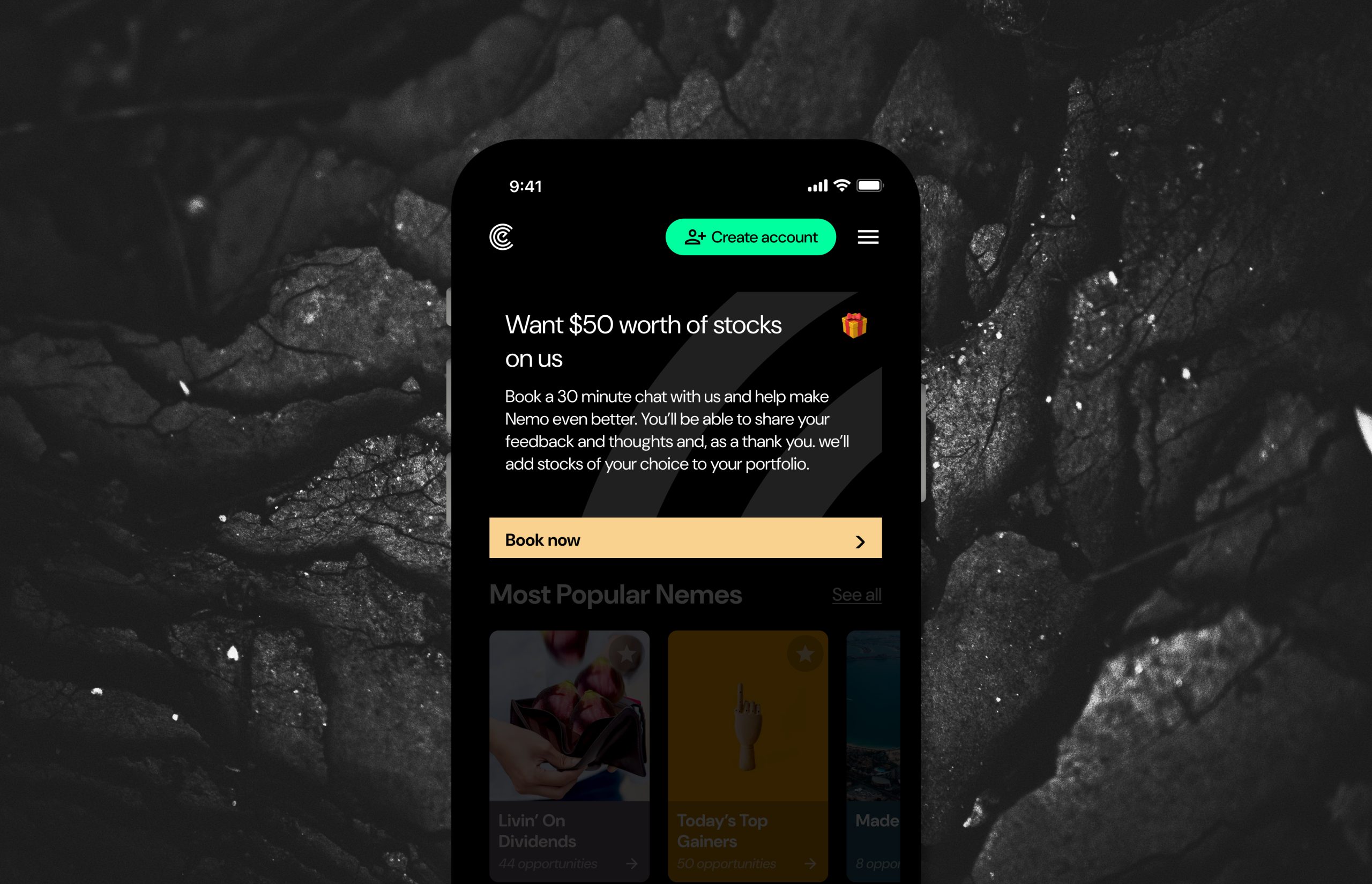
Seeking Authentic Feedbacks
UX Design
I appreciate being part of a product team that prioritises user feedback. To gather this feedback, we incorporated an interview scheduling feature into our Nemo app, allowing users to book 30-minute online interviews. Despite initial enthusiasm for the interview, only 16% of users who booked interviews actually attended. To address our user researcher’s concerns over the high number of missed interviews, I investigated potential reasons for the low participation rate.
I discovered that user commitment levels change throughout the user journey, I recommended reevaluating recruitment strategies to target more committed users, ultimately improving success rates.
Looking Deeper
To address the high no-show rate, I analysed various aspects of the interview scheduling process to identify opportunities for improvements:
- Clarity of communication
I spoke to the user researcher and he said that some users perceived the interview as a potential sales call. Providing more information on the interview’s purpose and format may alleviate user scepticism. - Access is available for anyone
Currently, anyone can book an interview through the homepage module. Creating friction or adding the module at the right moment of the user journey could encourage users to take the process more seriously. - Communication channels variety
The current system lacks customisable reminders and rescheduling options. It also requires the user to download an extra application before the interview. Implementing these features could improve user commitment. Additionally, offering alternative interview channels may accommodate users with technical difficulties.
At the back of my mind, I’m clear that this analysis relies heavily on assumptions about user behavior and reactions. User testing is necessary to validate these assumptions.
Strategies to Tackle No-show
From the analysis, I’ve developed several strategies to address the no-show issue.
Module Redesign
Revamping the interview module may encourage users to commit to attending interviews. However, the impact may be limited given the already high booking rate.
Strategic Module Placement
Positioning the module at a more relevant point in the user journey could target more engaged users, potentially increasing attendance. This approach would require additional development resources.
Transparent Messaging
Providing clear details about the interview process might alleviate user concerns and increase commitment.
Streamlined Scheduling Process
Maintaining active communication with users and fostering a dedicated research squad for future product reviews could help maintain commitment.
Enhanced Service Provider
Offering a provider with customizable reminders, rescheduling options, and preferred interview platform choices could reduce the no-show rate.
Access Restriction
Limiting module access to committed users might decrease no-shows but would require additional development resources.
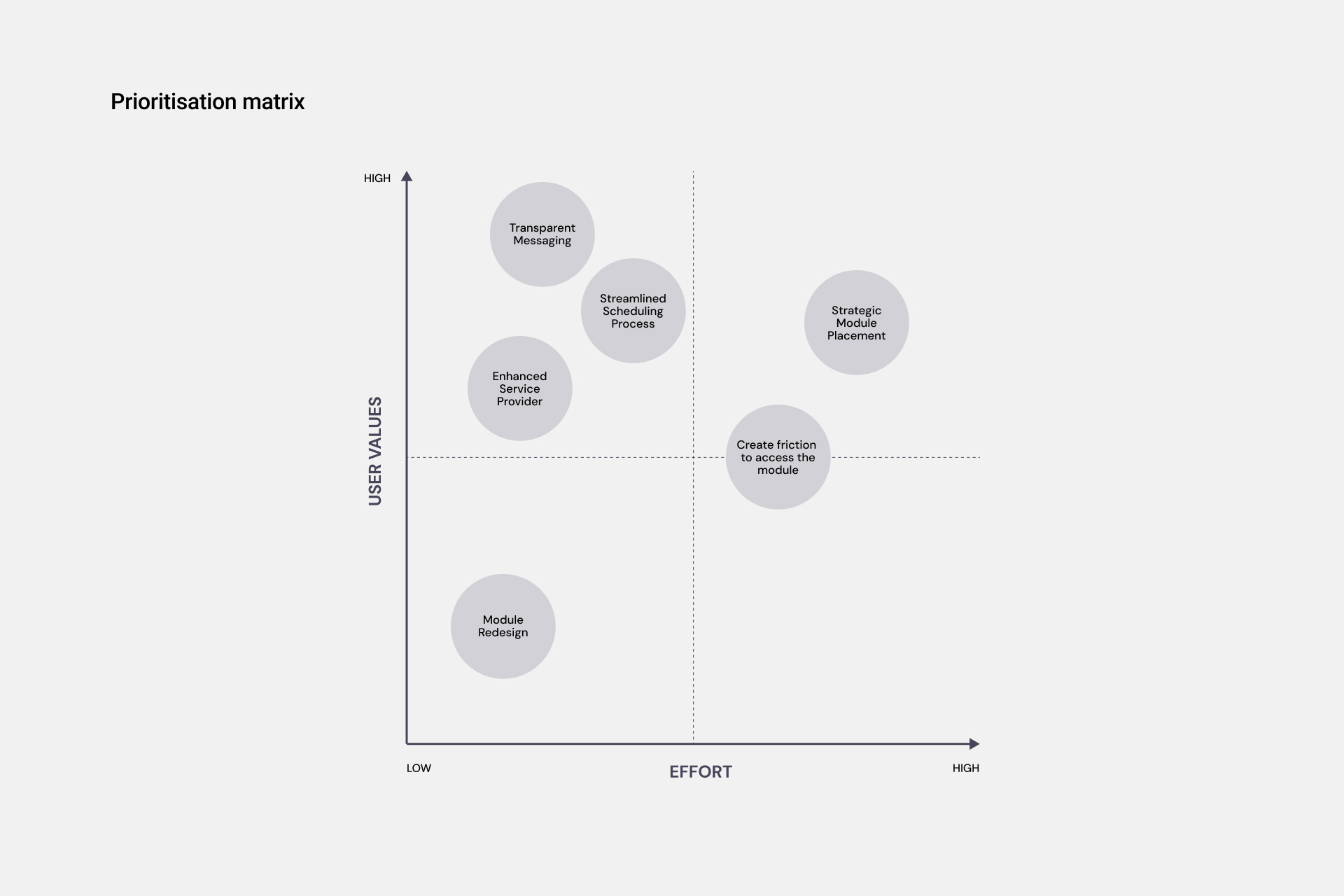
Chosen strategies
We chose to prioritise strategies that require minimal effort yet deliver high user value:
1. Streamlined Scheduling Process
Upon assessing the existing interview scheduling system, I designed a more comprehensive system that fosters a dedicated research squad, ensuring their ongoing engagement for testing future features.
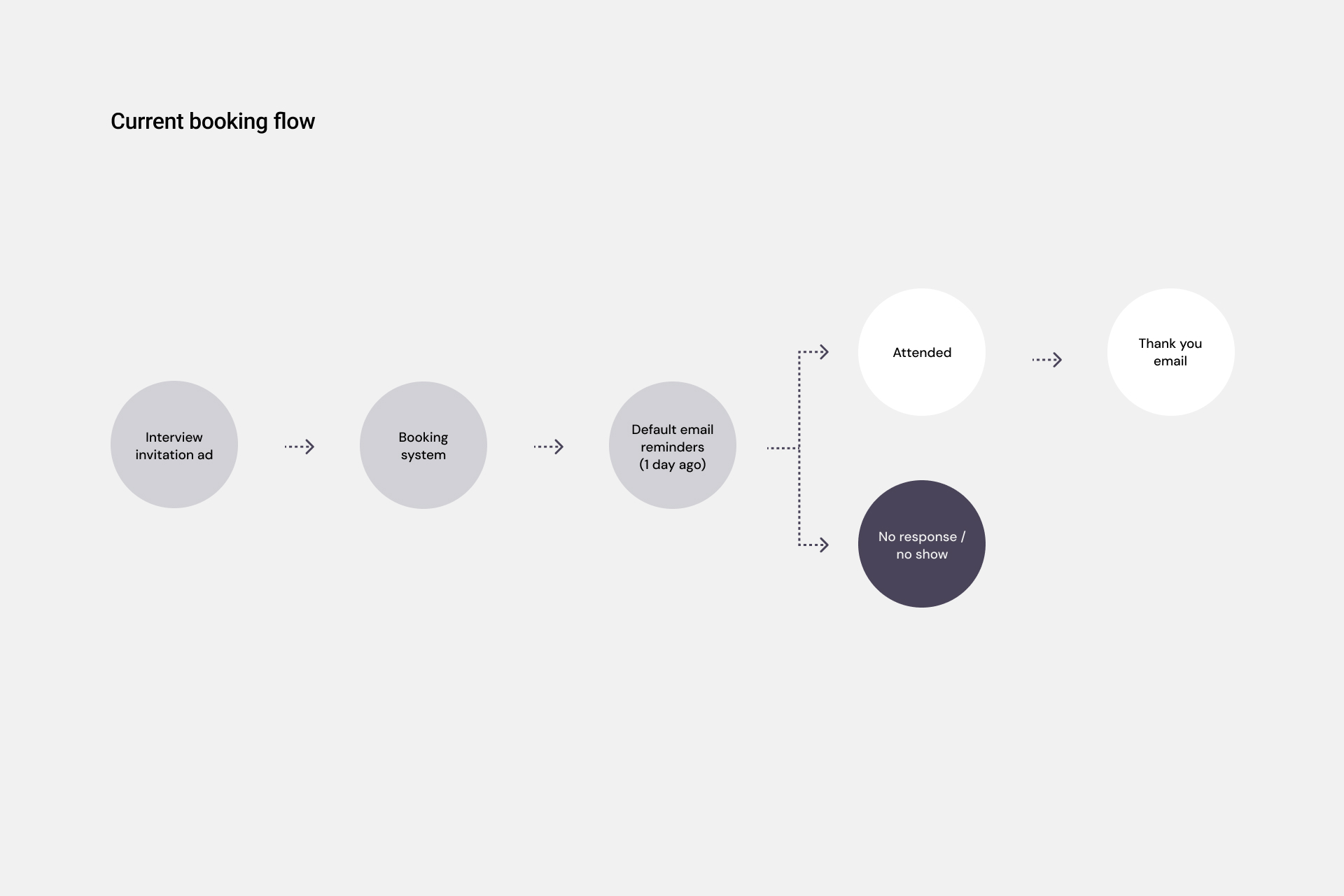
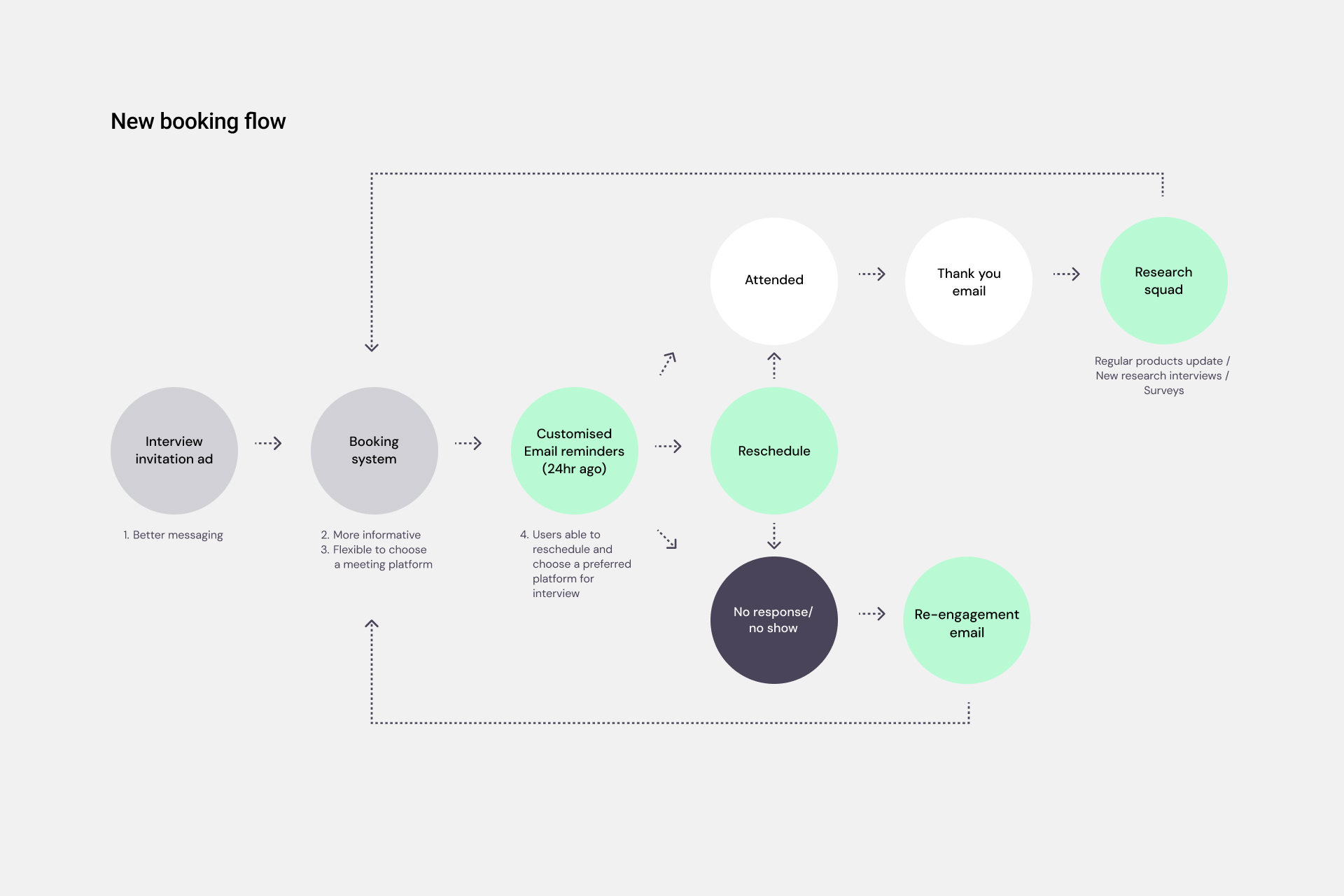
2. Enhanced Service Provider
I experimented with various service providers, each with unique characteristics, to determine which one could best meet our needs. While these providers are not direct competitors, they share similar features tailored to scheduling meetings.
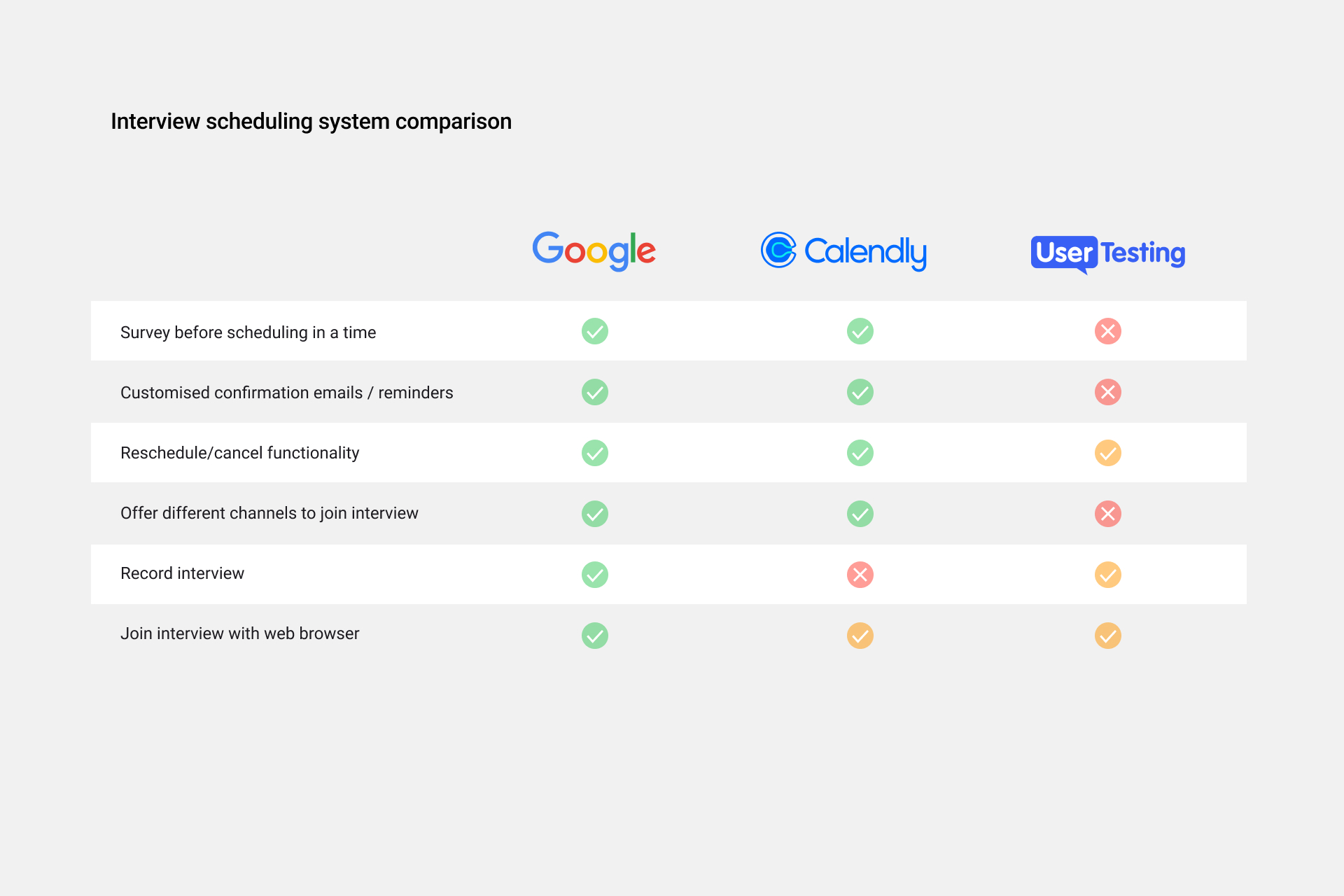
3. Transparent Messaging
To create a more transparent and reassuring experience, I revised our communication strategy to include the following aspects:
- Interview Expectations: A clear outline of what to anticipate during the interview process to ensure users feel well-informed and prepared.
- Contact Information: Providing our email address for any inquiries encourages open communication and fosters trust.
- Rescheduling Option: Offering the ability to reschedule interviews demonstrates flexibility and understanding of users’ needs.
- Reward Reminder: Reinforcing the reward mentioned in the advertisement serves as an additional incentive for user participation.
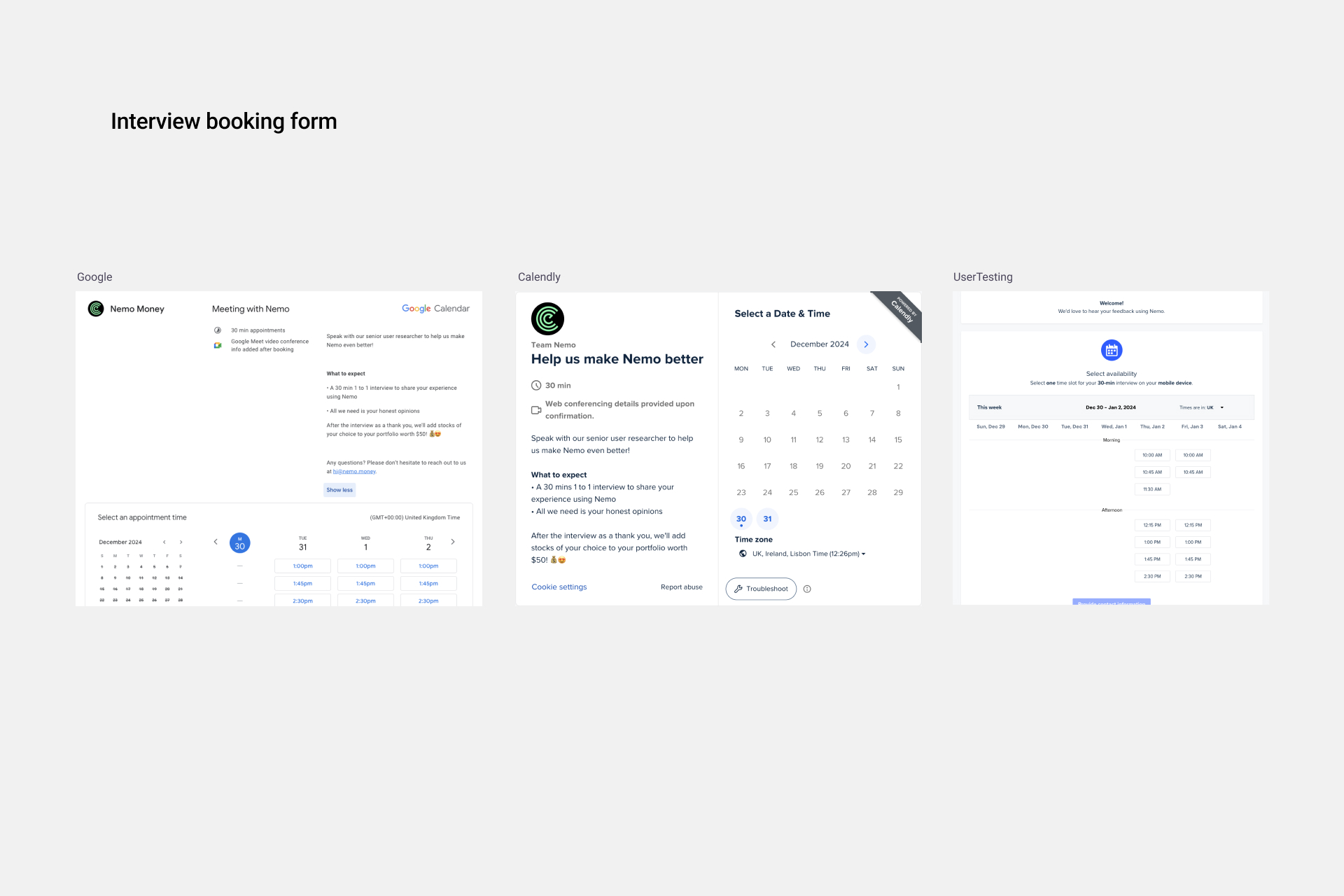
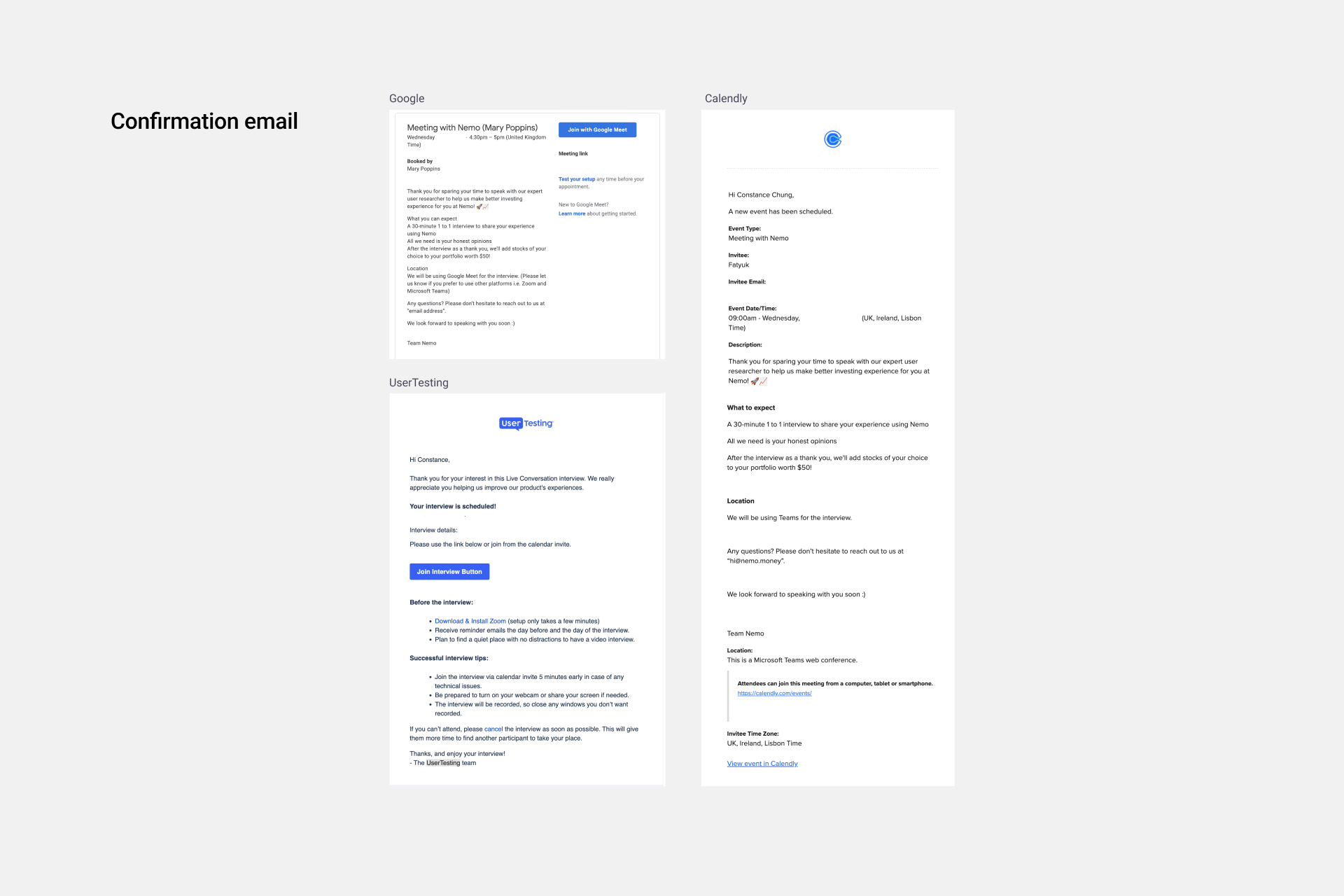
The Decision
90% of our users booked an interview with us with their gmail. With other features that may enhance the experience of scheduling a meeting with us, Google may give us an advantage to make this booking process better.
Putting to Test
To assess the validity of our assumptions, we conducted a month-long trial implementing the revamped process and utilising Google’s services. Although we sustained a high booking rate during this period, the no-show rate did not experience a significant reduction as we had hoped.
Learnings
Transparent communication is important throughout the interview process. However, it’s crucial to recognise that these factors may not be the sole drivers of user commitment. Understanding users’ unique intentions and journey stages is key to delivering tailored experiences.
To foster optimal commitment, we need to consider users’ journey stages, such as an initial user exploring offers versus a returning user preparing to invest. In light of these insights, our team has decided to temporarily remove the interview module to allocate our user researcher’s time effectively.
Going forward, we plan to reintroduce the module strategically, targeting highly engaged users like those who have completed trades or spent significant time on the app. Furthermore, we are open to diversifying our communication channels to make them more inclusive and tailored to clients’ preferences.
We remain dedicated to iterating on these concepts, testing their efficacy, and refining our approach to recruit our users to help testing our product, collect genuine feedback to create a user experience that is seamless, beneficial and engaging.